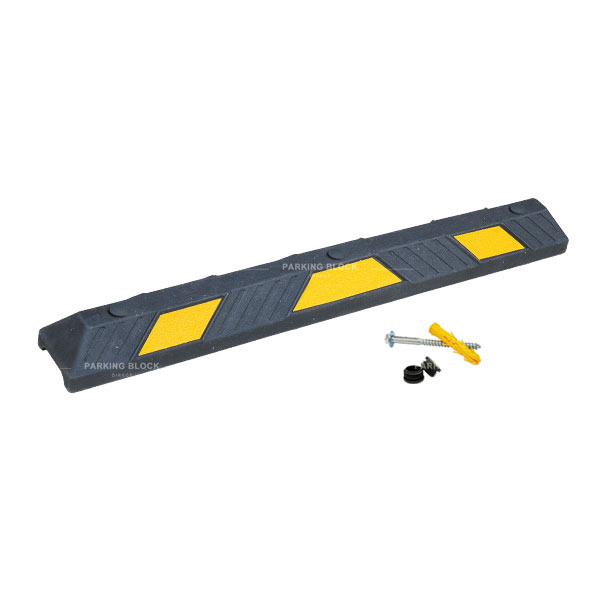
Parking blocks, also known as wheel stops, are ubiquitous in parking lots and garages across the world. These seemingly simple structures serve a crucial role in regulating and organizing parking spaces. In this article, we will explore what parking blocks are, their various types, how to choose the best parking blocks, and the reasons why they are so useful.
What are Parking Blocks?
Parking blocks are solid, durable barriers typically made of concrete, rubber, plastic, or recycled materials. They are typically rectangular in shape and feature reflective stripes or markers to enhance visibility, especially at night. These blocks are installed at the head of a parking space, perpendicular to the parking area’s direction, and are intended to prevent vehicles from overextending into adjacent spaces, curbs, or sidewalks.
Types of Parking Blocks
- Concrete Parking Blocks: Traditional concrete parking blocks are heavy and sturdy, providing excellent durability and longevity. They are often preferred for their ability to withstand extreme weather conditions and the impact of heavy vehicles.
- Rubber Parking Blocks: Rubber parking blocks are a lighter alternative to concrete. They are made from recycled materials and are more environmentally friendly. Their flexibility allows for easy installation and reduces the risk of damage to vehicles in the event of contact.
- Plastic Parking Blocks: Plastic parking blocks are lightweight and easy to handle during installation. They are available in various colors and designs, making them versatile for different parking lot aesthetics. These blocks are resistant to rust and corrosion, making them suitable for outdoor use.
- Recycled Parking Blocks: Sustainability is a growing concern in today’s world, and recycled parking blocks cater to this need. They are constructed from recycled materials, making them an eco-friendly choice for parking lot design.
Why Are Parking Blocks Useful?
- Parking Space Organization: Parking blocks play a vital role in organizing parking spaces efficiently. By clearly demarcating individual parking spots, they prevent vehicles from encroaching into neighboring spaces, ensuring an orderly and maximized use of available parking areas.
- Pedestrian Safety: Parking blocks act as a safety measure for pedestrians by preventing vehicles from driving onto sidewalks or pedestrian pathways. Their reflective markers also enhance visibility, especially in poorly lit areas, reducing the risk of accidents involving pedestrians.
- Vehicle Protection: Parking blocks provide an added layer of protection for vehicles. They prevent cars from accidentally rolling into walls, curbs, or other obstacles, which can cause damage to the vehicle’s body, tires, or suspension.
- Accessibility Compliance: In accordance with the Americans with Disabilities Act (ADA) and other accessibility regulations worldwide, parking blocks help ensure that parking spaces designated for people with disabilities are properly marked and accessible. The raised blocks provide a tactile warning for drivers and help ensure the space remains available.
- Maintenance Efficiency: Parking blocks simplify maintenance tasks in parking lots by clearly defining spaces and preventing cars from encroaching onto curbs or landscaping. This makes it easier for maintenance crews to clean, stripe, and maintain the parking area.
- Reduced Liability: Parking blocks reduce liability for property owners and operators by preventing damage to property, vehicles, and pedestrians. They act as a physical barrier that helps mitigate accidents and the resulting legal issues.
Conclusion
Parking blocks are an indispensable component of modern parking lot design. Whether made of concrete, rubber, plastic, or recycled materials, these simple structures serve a critical role in regulating parking spaces, enhancing safety, and promoting efficient use of available areas. As we continue to prioritize sustainability, accessibility, and safety in our urban environments, parking blocks will remain a valuable tool for property owners, operators, and the communities they serve.